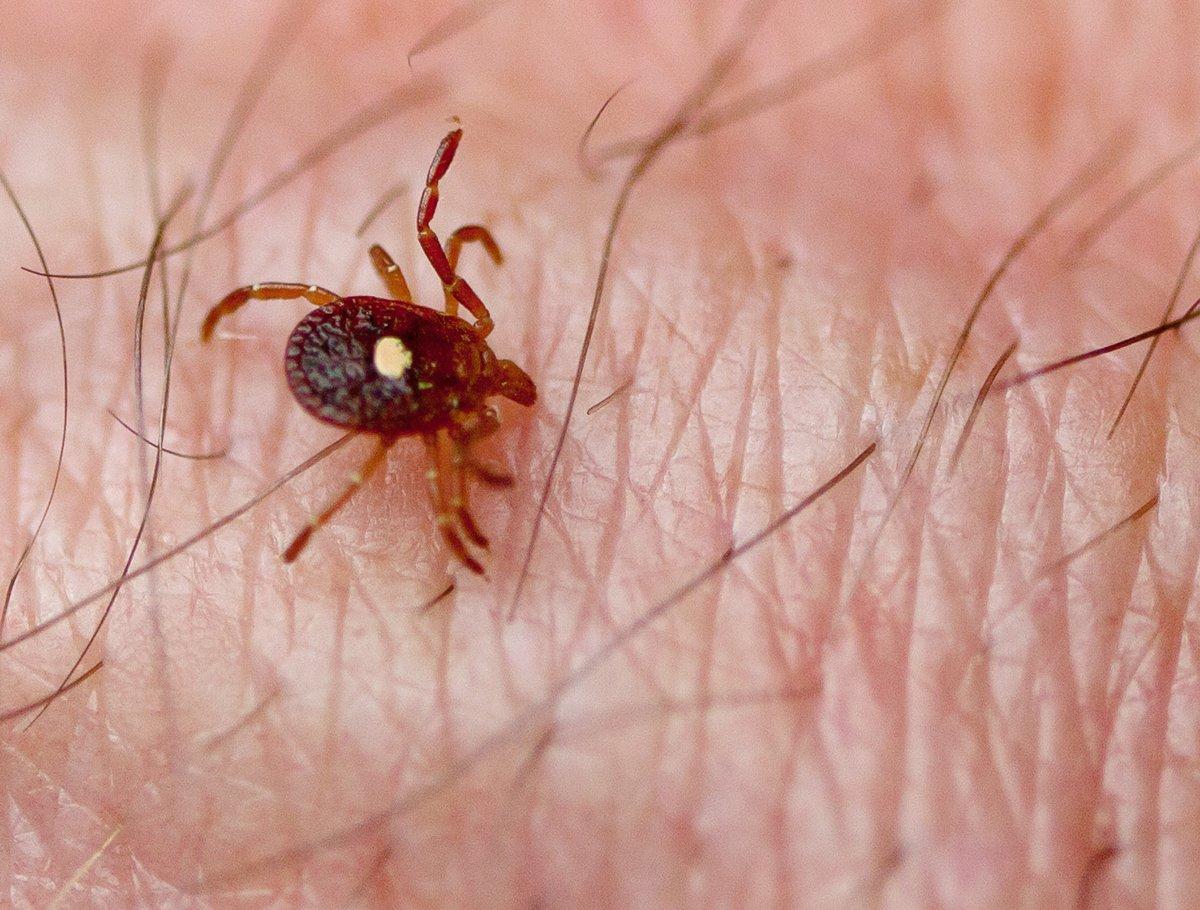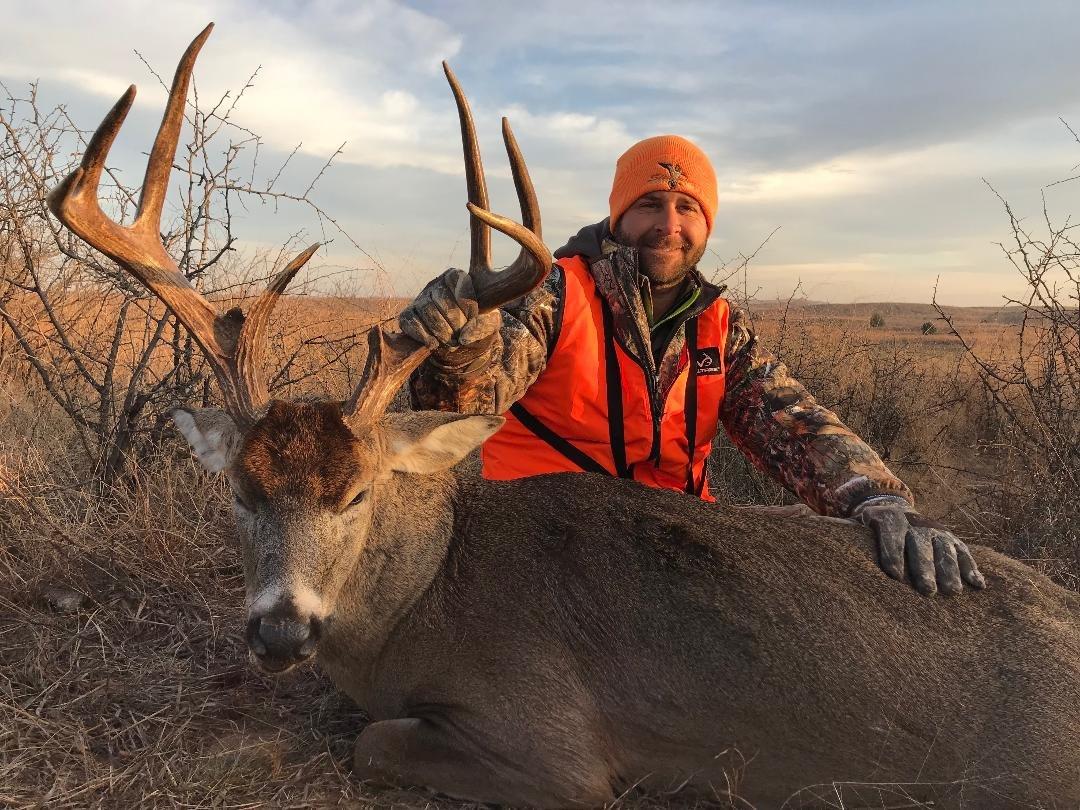A bite from a Lone Star tick could make you allergic to venison, but the disease is preventable
Imagine that you shoot a buck and throw a nice, fresh backstrap on the grill in celebration. You gather around the table with your family for a meal, but after the feast, you fall ill. Rashes. Dizziness. Vomiting. Anaphylaxis. Excruciating stomach pain. That's exactly what happened to Insights Hunting's Glen Reich and Cole Barthel, who also co-hosts Whitetail TV.
If you're bitten by a Lone Star tick, it could happen to you.
The chances of two people in the same company having it are rare, Reich said. But we've hunted together a lot. We've hunted the same properties. It could have happened at the same time or place.
The disease, which causes allergic reactions to mammal meat — beef, venison, pork — is called Alpha-gal Syndrome (AGS). Scientifically, it's referred to as Galactose-a-1,3-Galactose, which is a sugar molecule found in most mammals, but not humans, apes or monkeys. Scientists can't say for certain that tick bites are to blame for AGS, but research strongly suggests that they are, specifically bites from the Lone Star tick and some tick species found on other continents. The bite causes the human body to have allergic reactions to the alpha-gal sugar molecule found in other mammals.
The Lone Star tick, and AGS, are most common in southeastern states. It's slightly less common in the Midwest, but still prevalent. Alpha-gal is best diagnosed by a qualified allergist, the CDC says. But other healthcare providers are also capable. A blood test that looks for specific antibodies to Alpha-gal (called IgE) is the best proof of disease contraction. It's most common in people over 50 years of age. Allergic reactions typically occur after people eat meat from mammals that have Alpha-gal or are exposed to products made from mammals.
I was recently diagnosed with Alpha-gal syndrome, Barthel said. My doctor said the way I contracted it was either being bitten by a tick that was carrying the disease, or I consumed a lot of meat from an animal that carried it. I personally believe it was the former based on my lifestyle.
Common Alpha-Gal Syndrome Symptoms
Numerous symptoms exist, but not everyone expresses them all. They can range from rashes, hives, itching and swelling to anaphylaxis, dizziness, headache, vomiting and diarrhea. Partly because of the range of symptoms, the allergy can be difficult to diagnose.
I've had symptoms for two years, but never made the correlation between red meat and the hives and stomach pains, Reich said. The body takes four to six hours to process meat. That's when the histamines are released, and those being released to the skin service are what causes that reaction. Having no clue this was meat-related, I bought a new bed and hypoallergenic sheets, Reich continued. I spent all this money thinking it was related to my bed because I'd experience breakouts around midnight (four to six hours after eating). It finally hit me when I went to a steakhouse and was inhaling meat particles rather than eating them. My esophagus began to close off, which was a pretty scary scenario. Now, I carry an EpiPen everywhere.
Barthel's symptoms don't seem to be as severe as Reich's, but they're nonetheless difficult to manage, too. I've had seven Alpha-gal-related breakouts now, he said. It took five of them before I determined what it was. Each time started late at night with a small itch somewhere on my body. Then, before I knew it, I was up out of the bed scratching uncontrollably as hives appeared throughout my body. Each breakout lasted three to five hours.
Foods You Can't Consume with Alpha-Gal Syndrome
Most red meat, including venison, rabbit, squirrel, beef, pork and lamb, poses a risk of allergic reactions to AGS carriers.

Unlike Reich, Barthel doesn't have a severe pork allergy, though. He generally can't consume ribs, but he can still eat bacon. Why? Proximity, most likely. It isn't just about what you eat, but where it's prepared. I personally can eat certain types of pork, such as sausage and pork chops, but not ribs, Barthel said. But I think that's because ribs and beef are often cooked in the same locations. Every case is different.
Some chicken wings are even off the table for Reich.
Buffalo Wild Wings cooks their chicken wings in beef tallow, which will cause me to have a reaction, Reich said. So, not even wings are safe at some places. It's trial and error. People say there's no beef or pork in hot dogs? You can bet your butt that there is. I know from experience.
I take Allegra on a daily basis just to help me with coming into contact with it, and the EpiPen for emergencies, Reich continued. Beyond that, it's just avoidance and abstinence from red meat.
Tick Bite and AGS Prevention
Avoiding tick bites is the best way to prevent AGS. Luckily, there are best practices to follow, starting with clothing.
- Wear tick-treated material, such as Gamehide's Elimitick hunting clothing
- Wear long-sleeve shirts and pants
- Wear dual pant layers with the underside tucked into socks
- Wear enclosed shoes
- Wear hats and gloves
Combined with preventative clothing measures, there are many effective tick repellants.
BioShield is also a great combatant for ticks, Reich said. They recently released a video of a Lone Star tick on a UTV. A man placed his hand next to the tick. The little guy ran straight for the hand and climbed onto the man's finger. He removed the tick, rubbed BioShield on his hands, then reintroduced them to the tick. It did everything it could to avoid his hands after that. Tick prevention is the first and best line of defense.
Repellant-related tips:
- Apply insect repellent with 20 percent or higher concentrations of DEET (Mayo Clinic recommended, follow directions carefully)
- An application of Permethrin is also effective
- Use BioShield on clothing and gear as instructed
Don't forget other preventative measures at your disposal, such as Barthel's pro tip.
I've been told Z-Packs work well for prevention, too, Barthel said. If you plan to be in areas with concentrations of ticks, take these before you go. Spray down with repellant. Then check yourself for ticks habitually while afield and after returning indoors. Don't re-wear dirty clothes. Wash and dry them to help remove any ticks that might be present.
If you get a tick, removing it as quickly as possible can reduce the likelihood of disease transmission. Follow these steps for removal:
- Determine if it's attached
- If it is, use fine-point tweezers to grasp near the tip of the mouth/head region
- Pull steadily until the tick detaches (without squeezing or mashing the tick)
- Ensure the head/mouth isn't still attached to the skin
- Apply antiseptic to the bitten area
Life with Alpha-Gal Syndrome
AGS poses a real problem to everyone, but it's especially damaging to those who love to hunt and eat venison. For deer hunters who refuse to let this allergy stop them from hunting, give the meat to family and friends who like venison, Barthel said. Gift the meat to the needy. Donate it to programs such as Hunters for the Hungry.
There is no known cure for AGS, but Barthel says the lifespan of the disease is different for everyone. I've read cases where it lasted three years. I've read cases where it lasted 10. I know of people who have it worse than me, and I know others who are better off.
Overall, the best prevention is awareness. I don't want to see sportsmen and sportswomen put themselves in scenarios where they can't enjoy venison, Reich said. Those who ignore this threat should know that I used to live on red meat — beef and pork. Not anymore. I can't even be in the kitchen when someone is cooking it. This disease changes your life.
Don't Miss: What You Should Know About Lyme Disease
Check out more stories, videos and educational how-to's on deer hunting.










